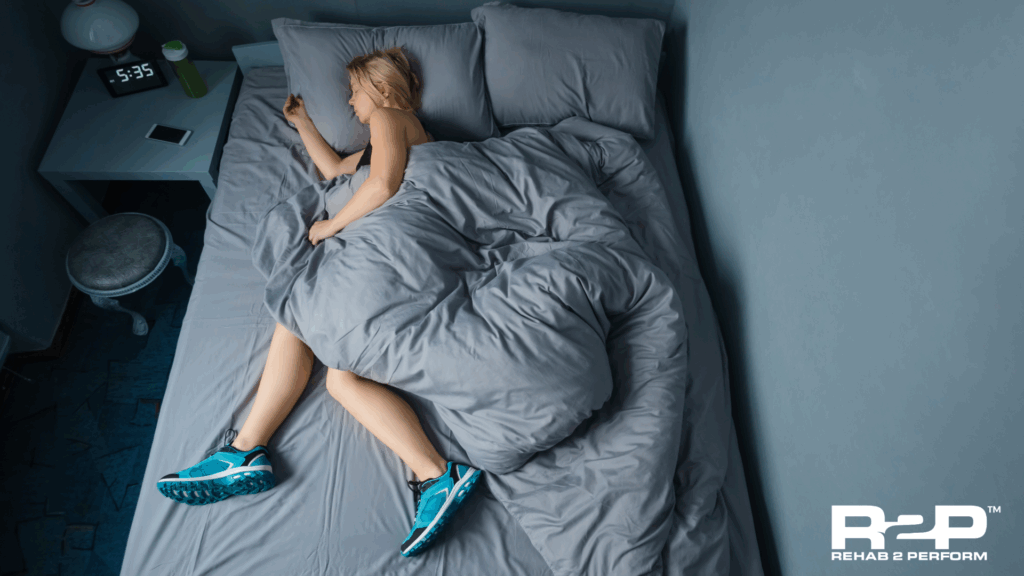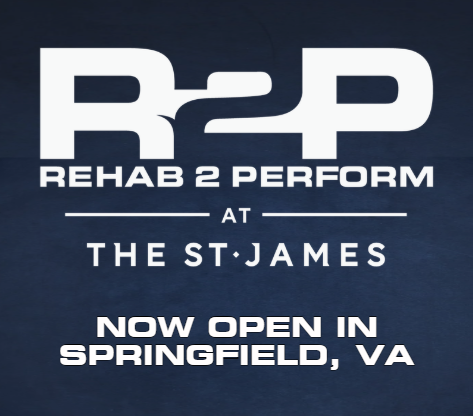The Running and Sleep Connection

How Rest Impacts Performance and Injury Recovery
By a Physical Therapist & Runner Who Loves a Good Nap
Let’s get one thing straight — runners are tough. We brave early mornings, unpredictable weather, and grueling miles. But there’s one performance tool many runners still overlook: sleep.
As a physical therapist and runner, I’ve seen firsthand how sleep quality (or lack thereof) can make or break your training — especially if you’re coming off an injury. The connection between recovery and sleep is strong, and understanding it can elevate your recovery, performance, and overall well-being.
So, let’s talk about why those ZZZ’s matter just as much as those miles.
Why Sleep Should Be Part of Your Training Plan
When you sleep, your body goes into full-on repair mode. This is when your muscles rebuild, your nervous system resets, and your brain processes everything it learned that day — including motor patterns and running form.
Here’s how quality sleep benefits your running:
- Faster muscle recovery
- Improved coordination and reaction time
- Better endurance and performance
- Reduced injury risk
- Improved mental focus and emotional resilience
In physical therapy, we often say that your body can only perform as well as it recovers. And no recovery tool is more effective — or accessible — than quality sleep.
The Sleep–Injury Connection
If you’re returning to running after an injury, sleep becomes even more critical. Poor sleep has been linked to:
- Slower tissue healing
- Increased inflammation
- Decreased pain tolerance
- Impaired balance and proprioception
Translation? If you’re skimping on rest, you could be slowing your recovery and increasing your risk of re-injury. Physical therapy can guide you through smart training and strength work, but if your body’s not getting the rest it needs, progress will stall.
How Much Sleep Do Runners Need?
The general recommendation is 7–9 hours per night for adults — but for runners (especially those training hard or rehabbing), 8–10 hours may be more appropriate. And yes, naps count! Even 20–30 minute power naps can improve alertness and aid recovery.
Signs you may need more sleep:
- Morning runs feel harder than usual
- You’re sore longer after workouts
- Mood swings or brain fog set in
- Your performance plateaus or declines
- You feel “off” even with light running
If this sounds familiar, don’t just blame your training. Look at your sleep habits.
PT Tips for Better Sleep & Running Recovery
As a physical therapist, I regularly coach runners on both movement and recovery. Here are some evidence-based strategies I share:
1. Create a Wind-Down Routine
Consistency matters. Go to bed and wake up at the same time daily. Limit screen time, dim the lights, and do something relaxing (stretching, reading, or light foam rolling work great).
2. Stretch It Out
Gentle mobility work before bed can calm the nervous system and release physical tension from your training.
3. Fuel Your Recovery
Proper post-run nutrition (especially protein and carbs) supports muscle repair overnight and can help regulate sleep hormones.
4. Watch Your Workouts
High-intensity workouts too close to bedtime may rev you up. If evening runs are your thing, try a longer cool-down and avoid caffeine late in the day.
5. Manage Stress
Life stress affects sleep, and sleep affects stress resilience. Tools like journaling, meditation, and breathing techniques (yes, we teach those in physical therapy too!) can help.
Why Runners Shouldn’t Sleep on a Performance Analysis
If you’re serious about running performance — or returning strong after injury — optimizing your training includes more than just logging miles.
At Rehab 2 Perform, we offer a Running Performance Analysis that breaks down your gait, mechanics, and strength patterns using expert assessment and high-tech tools. It’s an incredible way to identify inefficiencies, prevent injury, and enhance your overall running economy.
Combine those insights with proper sleep and recovery, and you’ve got a recipe for smarter, stronger running.
Final Thoughts from a Runner Who Loves Her Rest
Here’s the truth: Sleep is not lazy. It’s not optional. And it’s definitely not something to sacrifice for “one more episode” or “one more scroll.” If you want to run well — and keep running for years to come — prioritizing rest is one of the smartest moves you can make.
Physical therapy helps you build strength, restore function, and run with purpose. But sleep? That’s where the real magic happens.
Ready to understand your running on a deeper level? Book your Running Performance Analysis at rehab2perform.com/run and let’s uncover what your body (and your sleep habits) are trying to tell you.
Sweet dreams and happy running!
-Dr. Katie Woelfel, DPT, OCS | Performance Physical Therapist

Fitness Focused Physical Therapy
Rehab 2 Perform is a leading physical therapy and sports rehabilitation company dedicated to helping clients achieve optimal performance in their daily lives, whether they are athletes, weekend warriors, or individuals recovering from injury. With a team of highly skilled professionals across 11 state-of-the-art locations (soon to be 12), Rehab 2 Perform offers a personalized, evidence-based approach that emphasizes active rehabilitation and functional fitness. Find a Location near you, or Schedule Here.
We accept all major insurances, including Tricare, VA Community Care, and the Johns Hopkins Healthcare Network!

